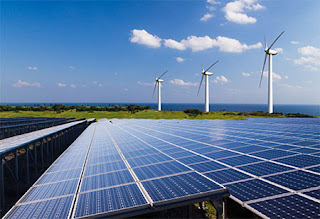The renewable energy sector is witnessing unprecedented growth, driven by increasing environmental concerns, technological advancements, and supportive governmental policies. As the market becomes more competitive, renewable energy companies must adopt robust public relations (PR) strategies to differentiate themselves, build trust, and effectively communicate their value propositions. Here are key PR strategies that can help renewable energy companies thrive in a competitive market.
1. Craft a Compelling Brand Story
A strong brand story is the cornerstone of an effective PR strategy. Renewable energy companies should articulate a compelling narrative that highlights their mission, values, and the positive impact of their work on the environment and society. This story should resonate with stakeholders, including customers, investors, and the media, and reflect the company's commitment to sustainability and innovation.
2. Leverage Thought Leadership
Establishing the company as a thought leader in the renewable energy space can significantly enhance its credibility and visibility. This can be achieved through:
- Publishing Articles and White Papers: Share insights and expertise on industry trends, technological advancements, and policy developments in reputable journals and industry platforms.
- Speaking Engagements: Participate in conferences, webinars, and panels to showcase the company’s expertise and vision.
- Blogging and Social Media: Regularly update blogs and social media channels with informative content that positions the company as an industry authority.
3. Engage with the Community
Community engagement is crucial for building a positive reputation and fostering goodwill. Renewable energy companies can engage with communities through:
- Educational Programs: Organize workshops and seminars to educate the public about renewable energy benefits and technologies.
- Partnerships with Local Organizations: Collaborate with local nonprofits and community groups on sustainability projects and initiatives.
- Corporate Social Responsibility (CSR): Implement CSR programs that address local environmental and social issues, demonstrating the company’s commitment to community welfare.
4. Harness the Power of Media Relations
Building strong relationships with media outlets is essential for securing coverage and shaping public perception. Renewable energy companies should:
- Develop a Media Kit: Create a comprehensive media kit that includes press releases, fact sheets, executive bios, and high-quality images.
- Cultivate Relationships with Journalists: Engage with journalists who cover the energy sector and provide them with exclusive stories, interviews, and industry insights.
- Monitor and Respond to Media Coverage: Track media mentions and respond promptly to both positive and negative coverage to manage the company’s reputation effectively.
5. Utilize Digital and Social Media
Digital and social media platforms are powerful tools for reaching a broad audience and engaging with stakeholders. Strategies include:
- Content Marketing: Produce high-quality content such as blogs, videos, infographics, and case studies that highlight the company’s projects, innovations, and impact.
- Social Media Campaigns: Run targeted campaigns on platforms like LinkedIn, Twitter, and Facebook to raise awareness, drive engagement, and promote events or product launches.
- SEO and Online Presence: Optimize the company’s website and online content for search engines to increase visibility and attract organic traffic.
6. Highlight Success Stories and Case Studies
Showcasing successful projects and customer testimonials can build credibility and demonstrate the tangible benefits of the company’s solutions. Create detailed case studies that:
- Illustrate Real-world Impact: Highlight the environmental, economic, and social benefits of completed projects.
- Feature Customer Testimonials: Include quotes and stories from satisfied customers to build trust and authenticity.
- Use Visuals: Incorporate high-quality images and videos to make the case studies more engaging and impactful.
7. Crisis Management Planning
In the event of a crisis, having a well-prepared PR plan is crucial to mitigate damage and maintain trust. Key elements include:
- Crisis Communication Team: Assemble a dedicated team responsible for managing communications during a crisis.
- Crisis Response Plan: Develop a detailed plan outlining the steps to be taken in various crisis scenarios, including key messages and spokespersons.
- Transparent Communication: Ensure timely and transparent communication with stakeholders to address concerns and provide updates.
8. Engage in Policy Advocacy
Active involvement in policy advocacy can position the company as a leader in the renewable energy sector and influence favorable regulatory developments. Strategies include:
- Lobbying Efforts: Engage with policymakers to advocate for supportive policies and regulations.
- Industry Associations: Join and participate in industry associations to collaborate on advocacy efforts and stay informed about policy changes.
- Public Campaigns: Launch public awareness campaigns to garner support for renewable energy initiatives and policies.
Conclusion
In a competitive market, renewable energy companies must deploy comprehensive and strategic PR efforts to stand out, build trust, and communicate their unique value. By crafting a compelling brand story, leveraging thought leadership, engaging with the community, utilizing digital and social media, highlighting success stories, planning for crises, and engaging in policy advocacy, these companies can effectively enhance their visibility and reputation, driving growth and impact in the renewable energy sector.

No comments:
Post a Comment